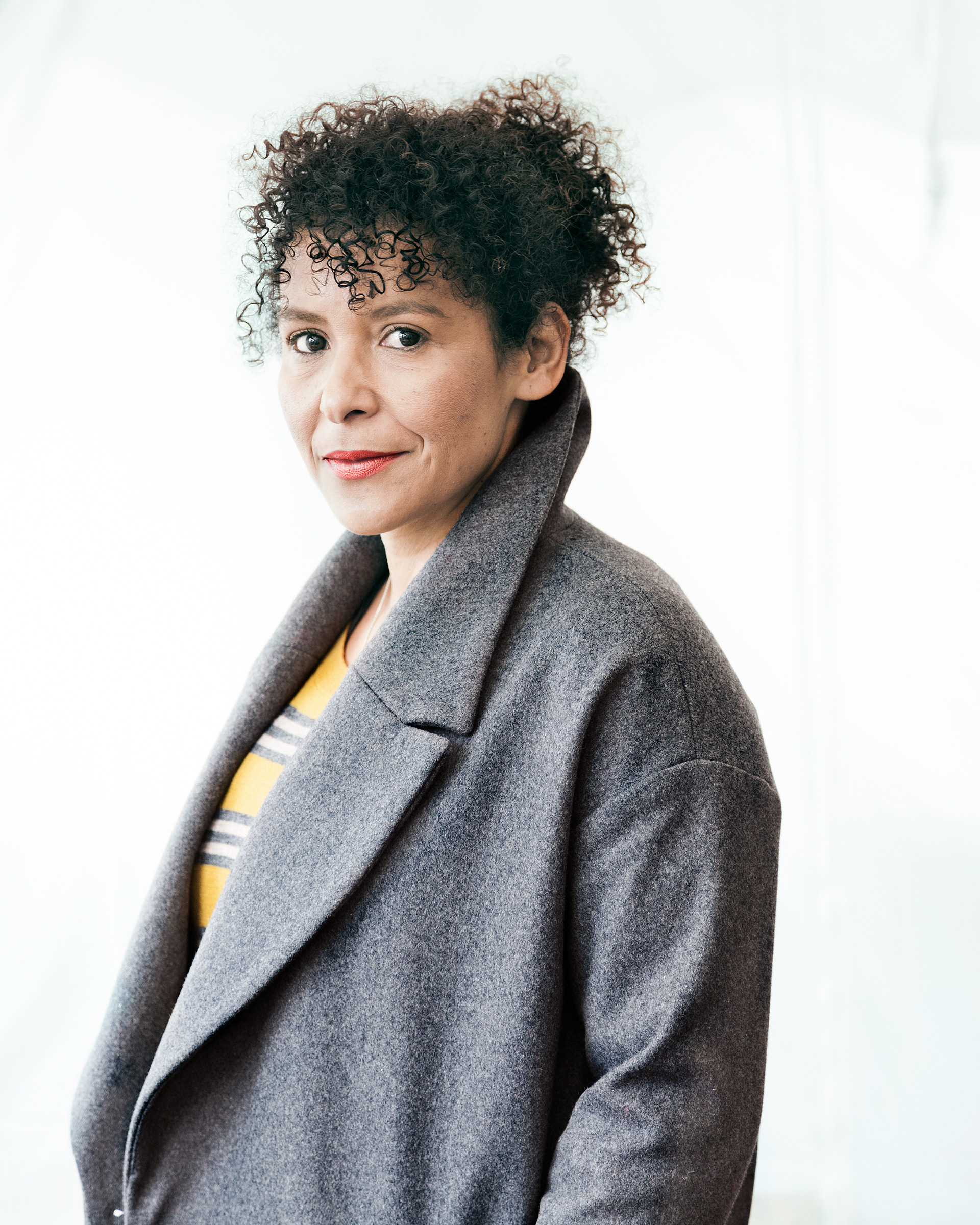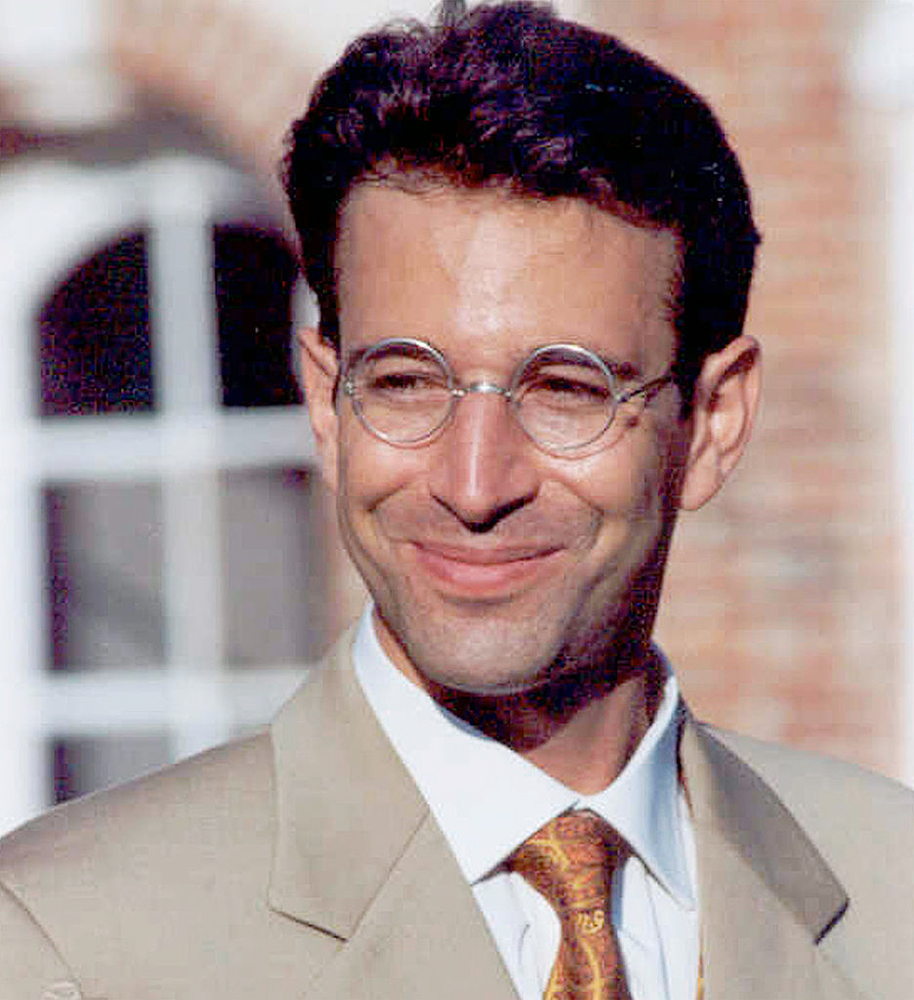
I have known Mariane Pearl for fifteen years, as a friend, mother, journalist, champion of the voices of women and an unconquerable spirit. We came together over a shared concern for displaced people, and in 2007, I had the privilege of being involved in a film based on her book A Mighty Heart. Eighteen years after her beloved husband, Wall Street Journal reporter Daniel Pearl, was murdered at the hands of terrorists in Pakistan, I spoke to her about overcoming trauma, raising a child in the wake of a tragedy, and her perspective on world events.
I rang you as soon as I heard the news that a Court in Pakistan had overturned the convictions of the four men accused of killing Danny, finding them guilty of kidnapping but not murder. The men were later rearrested. You spoke instead about people in Spain—where you live—suffering in hospital without their families. It said a lot to me that you were thinking of others. Could you share your thoughts on the Court’s decision? The facts are clear and those responsible for Danny’s death belong in prison. The other day, Adam’s honorary godfather called me from Pakistan. He wanted to share that everyone in both his professional and private surroundings was outraged by the attempt to reverse Omar Sheikh’s sentence. That means everything to me. When I left Pakistan pregnant with Adam, hundreds of Pakistani citizens wrote to me, adding their names and contacts so I could see that they didn’t fear reprisal for supporting us. I am not interested in revenge on terrorists’ terms. What matters most is how other people react, that is where we have a margin to grow as a world: each individual’s sense of integrity is our collective source of hope.
Can you speak a little more about that? Terrorism would have won if I had lost my faith in mankind but the opposite happened. I believe even more in people’s potential to remain dignified and empathetic and I believe in people who strive for justice and the greater good. The more they hate the more I love, the more they spread fear the more I spread hope. Meanwhile, Adam embraces life, and Sheikh was never able to claim Danny’s legacy. Adam wants to study physics and philosophy. He’s also a talented guitar player and graphic artist who is teaching himself Arabic. He’s going to Harvard. We have won this war, me and all those like you who have helped him grow. P.S. I’ve told Adam that I am embarrassing him, but it’s all your fault. He said okay.
I remember, like it was yesterday, Maddox and Adam sitting in your apartment in New York watching the Jungle Book while we were trying to make pasta. And now they are college students. I often think about the fact that when you lost Danny, you were pregnant with Adam. Was there a promise you made to yourself or to him that got you through? When we got married Danny wrote a marriage vow that read: “Turn our lives into a work of literature”. After he passed away, I understood what he really meant beyond the romantic thought itself. I promised him to honor our narrative of peace and understanding. I promised to keep listening to Led Zeppelin in the mornings. And that I would fight back every time despair and pain lodged in my head, advising me to give up on myself and others. I promised to keep exploring the human race and through storytelling, shine a light on people who are both the opposite and the antidotes to terror. As for Adam, when he was born my first thought was a promise: that I would guard his integrity and freedom as fiercely as one of those sculpted two-headed, fire-spitting lions that adorn the entrance of our building.
How do you talk to children about hard realities? I believe in taking children seriously while respecting their rights to be children. In my own family, my father’s suicide remained a secret until I was 17. As a teenager, I knew he didn’t just die by accident as I was told, and that was very scary. When I discovered his suicide note, it was an odd but powerful relief. When I found out, we still were not allowed to talk about him though. I believe proper communication would have spared me a lot of angst. Children don’t belong to anybody but themselves and they are entitled to their realities.
Every situation and trauma is different. Do you have any advice or reflections for people who are going through so much at this time? It’s very difficult to give advice in general because pain is so specific. Hardships tend to shape people’s lives, and it’s our work as human beings to give them significance and to clarify what it is that we have come into this world for.
Danny was someone who devoted his life to the search for truth. Did you and he share the same view about journalism? Do you still have the same faith? I do believe in journalism. My faith has never wavered. That is not to say that we don’t have serious problems with it today, ranging from economics to systemic assaults on truth. But ethics was our cement and still is to me.

You’ve written about how easy it is for terrorists to manipulate the media. Is this still a concern? We are very predictable. That is why criminals perform their deeds in time for the evening news. The rush for attention-grabbing headlines reflects the economic model a lot of people work under. They’re in it for the cause, but they stumble inside the profit-making machine. For a long time, journalists were happy asking everyone questions but themselves. News was that straightforward. Nowadays, journalism is only as good as the willingness of those who practice it to be honest when they ask themselves who or what they’re in it for.
I respect the work you do training women journalists with your Women-Bylines initiative. Could you tell me what drives you in this? The traditional media has easily overwritten the female gender until now. I find that the most exciting and promising event of our generation is the end of that era, which started with mankind itself. Today, we are still raped as a weapon of war or held as sexual slaves or we endure discriminations from another age. We also have three jobs and raise our kids alone. In Africa, the Middle East, and all over the continents and across cultures, women stand for justice—refusing to be married off as children, mutilated, deprived of land rights, or held back by countless of discriminative laws. They are insisting on being part of the equation for the greater good.
And they are taking a lead? Yes, and to me, this is so interesting because it’s an emerging leadership of people who have never known power. If you don’t have power, you are not afraid to lose it. When you have endured how abuse of power translates into your family or community’s lives, you have no desire for it. Instead, you understand how humans operate and take it from there.
With travel coming to a halt due to the virus, there will be much more focus on local journalists and photographers. There are excellent trained journalists in most of the places foreign correspondents used to cover. I remember discussing this with Danny. It feels completely wrong that people who have the knowledge of a place or situation and the right address books were just used as “fixers.” Danny agreed with me, even though that thought seriously threatened his job.
How do you reflect this in your work? I try to combine the two: The rise of women and the recognition that people were entitled to report about their own lands. I am a cofounder of a new media project called Meteor that focuses on quality journalism and women. Women-Bylines is one part of it, a series of workshops worldwide to produce films and multimedia by and about women. If you give women a voice, they are going to use it and if they use it, it will be for justice.
We all fall short but is there a philosophy you try to live by? Do you remember the last words in my book? They’re from Diane Ackerman:
“I swear I will not dishonor
my soul with hatred,
but offer myself humbly
as a guardian of nature,
as a healer of misery,
as a messenger of wonder,
as an architect of peace.”
More Must-Reads from TIME
- Cybersecurity Experts Are Sounding the Alarm on DOGE
- Meet the 2025 Women of the Year
- The Harsh Truth About Disability Inclusion
- Why Do More Young Adults Have Cancer?
- Colman Domingo Leads With Radical Love
- How to Get Better at Doing Things Alone
- Michelle Zauner Stares Down the Darkness
Contact us at letters@time.com